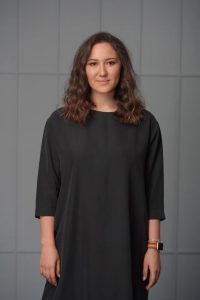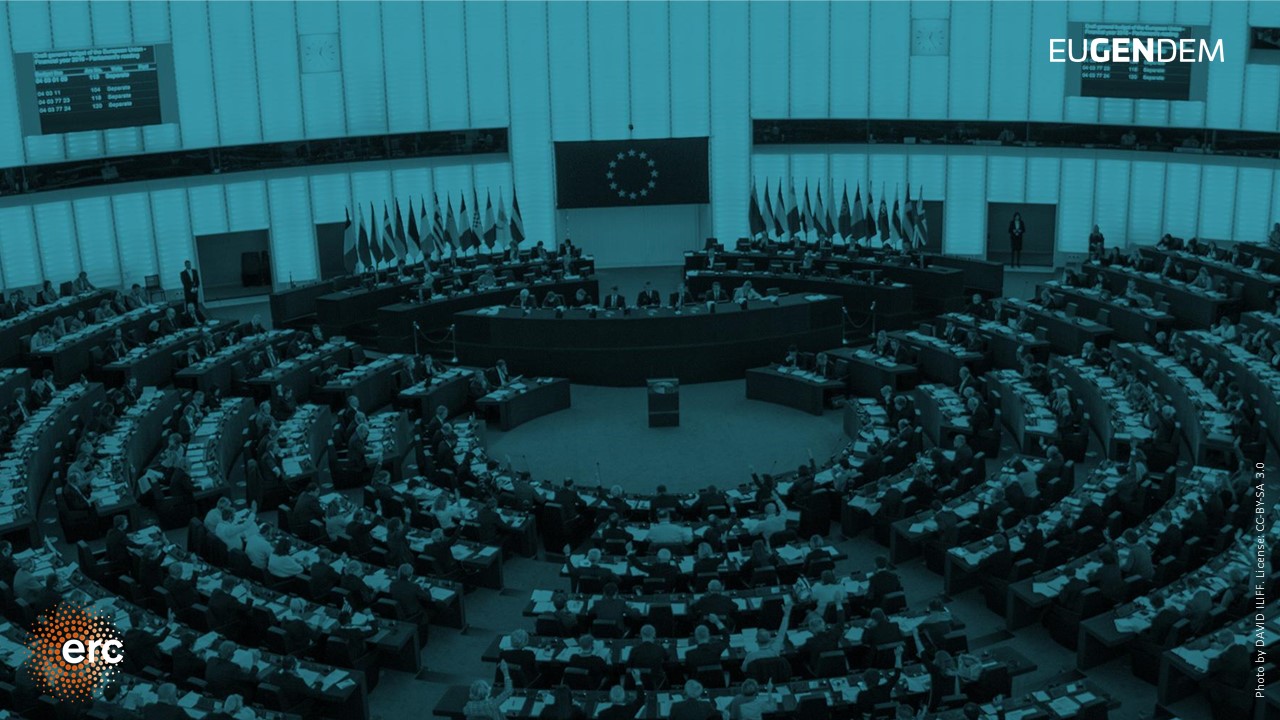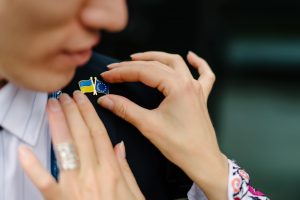 Mariia Tepliakova visited EUGenDem and the University of Helsinki from April to May 2023. We had the pleasure to interview her.
Mariia Tepliakova visited EUGenDem and the University of Helsinki from April to May 2023. We had the pleasure to interview her.
Mariia Tepliakova is a PhD candidate from the Center for European Union Studies (SCEUS) at the Paris Lodron University of Salzburg in Austria. She is part of the “Challenges to European Integration”, a project co-funded by the Austrian Science Foundation (FWF).
For more information on Mariia, follow this link.
Mariia, thank you for taking part in this interview. What is your favourite activity in Helsinki?
Thank you for having me! My favourite activity in Helsinki is the sauna: I love how accessible it is. There is one in my dorm, at the office and in every city district.
What are your thoughts on the EUGenDem project and our study of the European Parliament’s political groups?
The European Parliament is so well-researched now that even finding gaps for further research projects has become hard. Thanks to the EUGenDem project, we know so much about gender and how it affects policymaking in the Parliament. The team’s research output has been super extensive, or as other scholars have put it: EUGenDem ate and left no crumbs.
I also admire the work-life balance of the EUGenDem team. I think it contributes to the fantastic quality and amount of the research output. It is incredible how, despite lockdowns during the COVID-19 pandemic, the international team has come up with this many publications.
What are your research plans for your research visit here in Helsinki?
My visit to the University of Helsinki consists of working on a paper dealing with the development of European care strategy in childcare and the healthcare provision of the EU. EUGenDem’s expertise in gendered policymaking has been very helpful as I developed my future paper’s first draft. I came with the help of expert opinions. In a way, the visit for me is a writing retreat.
How does EUGenDem relate to your research?
The unique yet interdisciplinary expertise of the EUGenDem was the inspiration behind my visit. I am very interested in the development of gender equality policies in the EU ad how the approaches and narratives around them have changed over time. However, I found researching the policy or law-making and the dynamic of the Union’s institutions a bit intimidating. As the EUGenDem team made working on this level of EU politics more accessible for qualitative research, I was very interested in their opinion and perspective on my project.
We also have specialists at home who work with gender policies, as well as fantastic EU scholars, but their research interests rarely overlap. My supervisor, Jessica Fortin-Rittberger, recommended EUGenDem to help me bridge the gap between these two fields, and so far, the visit has been incredibly helpful to my dissertation work.
How do you like it so far?
It’s great! The team members are very involved and nice. The team’s work-life structure is something to look up to and apply back home. I was pleasantly surprised to receive working tools such as a laptop from the University for my short stay in Helsinki. Overall, the conditions are impressive.
What have been the highlights of your research visit?
The Eurovision party hosted by the Center of European Studies last Friday is definitely one!
Many EU studies departments in Europe have serious topics such as research on taxation, extreme right-wing actors, or populism. We are conditioned to think that this matters for social scientists, and it does, but there are also aspects of society that are ignored in research because they are not deemed essential but impact how we function and live.
The panel discussion at the party relating to Eurovision and its political ramifications was one of the highlights of my stay. I have a background in media studies which made it even more enjoyable to hear the panelists discuss the broadcasting union and the case of Australia participating. I think it’s important to broaden the research horizon from time to time.
Another highlight has been the research seminars. It was my first time attending a seminar where the presenters did not have slides. Instead, they got their feedback based on the reading by the commentators, which is very helpful at later stages, right before journal submissions.
What are you looking forward to?
The Conference on European Politics, Equality, and Democracy on 25-26 May 2023,
It’s a huge opportunity to participate in the Conference with fantastic gender scholars. I will be starstruck by how many unique wonderful people will be here. I’m also looking forward to the atmosphere and discussions. Gender scholars give the best kind of constructive sandwich-style feedback.
Who is going to win the Eurovision 2023?
The Czech submission is my favourite so far. Feminist submissions are not usually the public’s favourite. The mix of Eastern European women creates a sisterhood where I feel represented, and I also like how they have added Slavic folklore into the show. We are witnessing a change where it is becoming cool to perform in a native language, making Eurovision songs more authentic and unique.
Any final words?
I wish I could stay longer to learn some Finnish. It seems like a very unique language. Johanna Kantola taught me “Kiitos” on my first day, but I would like to learn more.
The interview took place on the 10th of May at the University of Helsinki.

 Liliia Antoniuk, Doctoral Researcher, University of Helsinki
Liliia Antoniuk, Doctoral Researcher, University of Helsinki